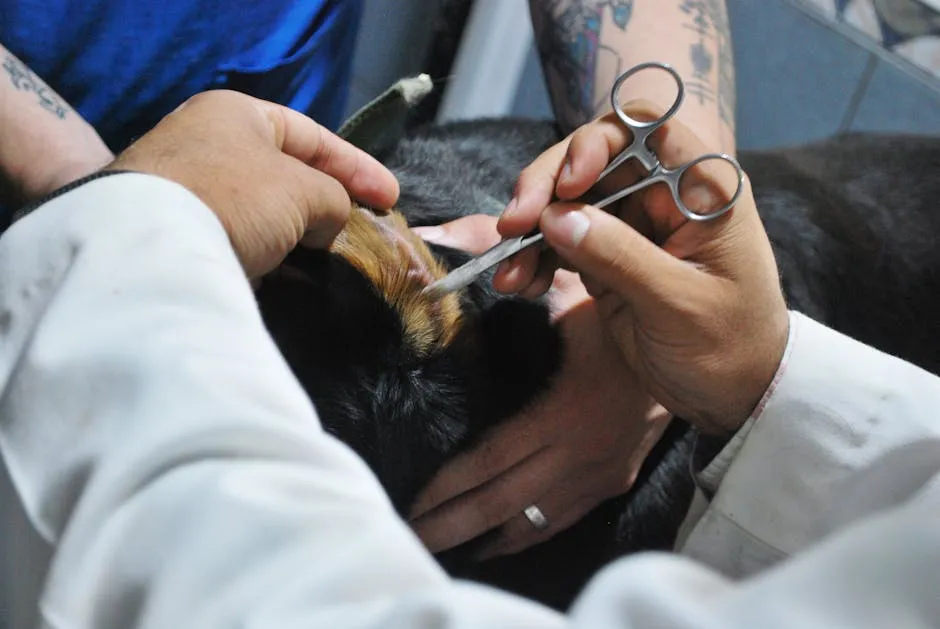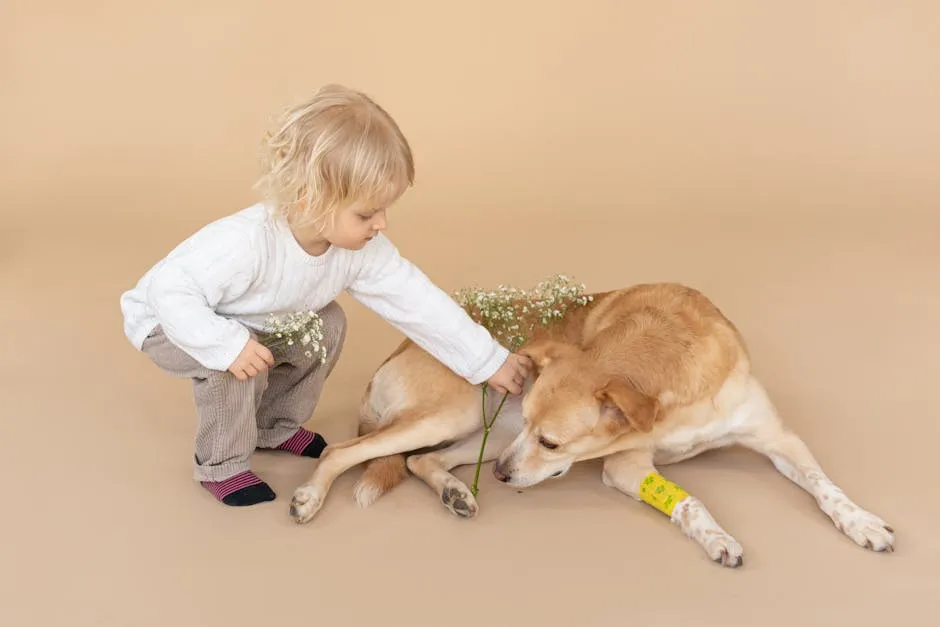Introduction
Natural remedies for dogs are gaining popularity. Many pet owners seek these alternatives for various health issues. It’s crucial to consult a veterinarian before trying any new treatment. This article aims to highlight natural remedies that can alleviate common dog ailments.Summary and Overview
Holistic pet care is on the rise. Many pet owners are interested in combining it with traditional veterinary practices. Natural ingredients for health and wellness are appealing. Common conditions like allergies, skin issues, and digestive problems can benefit from these remedies. Always consider your dog’s unique needs and consult with your veterinarian before introducing new treatments. For an extra boost in digestive health, consider adding a Dog Probiotics Supplement to your dog’s diet. Probiotics can help maintain a healthy gut flora and support overall digestive health. Plus, who doesn’t want their furry friend to have a happy tummy?
Understanding Natural Dog Remedies
Natural dog remedies are treatments derived from plants and other natural sources. They focus on holistic care and overall wellness. These remedies aim to support your dog’s health while minimizing side effects. Many pet owners prefer natural options for their pets. They often have fewer side effects than synthetic medications. Additionally, natural remedies can be more accessible. For instance, adding Glucosamine for Dogs can help support joint health and mobility, especially in older dogs. When using natural remedies, dosage is vital. Always follow guidelines based on your dog’s weight and size. Safety is also a key consideration; some natural substances can be harmful if misused. Self-treatment without veterinary guidance poses risks. It’s essential to discuss any natural remedies with your veterinarian first. They can help ensure the remedy is safe and appropriate for your pet’s specific health needs. Prioritizing your dog’s safety leads to better health outcomes overall.
Common Natural Remedies for Dogs
1. Remedies for Skin Issues
a. Itchy Skin
If your dog is scratching frequently, natural treatments can help. Oatmeal baths are soothing and can reduce itchiness. Simply grind oatmeal into a fine powder and mix it in warm water. Let your dog soak for about 10-15 minutes. Coconut oil is another excellent option. It moisturizes the skin and can alleviate dryness. Applying a small amount directly to the affected area can provide relief. For more information on the benefits and usage of coconut oil, check out our guide on coconut oil for dogs.Don’t forget about omega-3 fatty acids! These healthy fats promote skin health and reduce inflammation. You can find omega-3 supplements or add fish oil to your dog’s diet. Regular use can lead to a shinier coat and healthier skin. Check out Omega-3 Fish Oil for Dogs for an easy way to incorporate these beneficial fats into your dog’s diet.Coconut oil can be a great natural remedy for your dog’s skin issues. Learn more about its benefits and usage.

b. Hot Spots
Hot spots are painful skin infections that require attention. Natural antiseptics, like aloe vera and chamomile, can help soothe and heal these areas. Aloe vera gel can be applied directly to the hot spot. Chamomile can also be brewed into a tea, cooled, and applied using a clean cloth. You can find Aloe Vera Gel at your local store or online for easy access. Identifying the cause of the hot spots is crucial. Common triggers include allergies, fleas, or moisture. Addressing the underlying issue can prevent recurrence. Regular grooming can also help keep your dog’s skin healthy and free from irritants.
2. Digestive Health
a. Upset Stomach
If your dog has an upset stomach, certain foods can be beneficial. Canned pumpkin is a fantastic natural remedy. It’s high in fiber and can help firm up loose stools. Just make sure to use 100% pure pumpkin, not the spiced pie filling. You can find Canned Pumpkin (100% Pure) for a quick and easy solution. Probiotics are another great addition to your dog’s diet. They support gut health and improve digestion. You can find dog-friendly probiotic supplements at pet stores or ask your vet for recommendations. Ginger is also effective for calming stomachs. A small amount can relieve nausea. Watch for signs of more serious issues, like vomiting or lethargy, and consult your vet if symptoms persist.
b. Diarrhea Management
When dealing with diarrhea, fasting your dog for 12-24 hours can give their digestive system a break. After the fast, introduce a bland diet. Boiled chicken and white rice are excellent options. This diet is easy to digest and can help restore normal bowel function. You can also check out Boiled Chicken Treats for a tasty option that your dog will love! Hydration is key! Ensure your dog has access to fresh water throughout this process. If diarrhea continues for more than a day or two, or if you notice blood, seek veterinary advice.
3. Joint and Muscle Pain Relief
a. Natural Supplements
For dogs experiencing joint pain, natural supplements can provide relief. Glucosamine is widely recommended for joint health. It helps maintain cartilage and may reduce inflammation. You can find glucosamine in various forms, including chews and pills. Chondroitin is another supplement that works well alongside glucosamine. Together, they can improve joint function and mobility. Adding a Natural Joint Support Chews to your dog’s routine can help maintain their mobility as they age. Turmeric is an amazing anti-inflammatory herb. Adding turmeric to your dog’s diet can help manage pain and inflammation. Always consult your vet for the best dosage and to ensure these supplements are suitable for your dog’s specific needs. By considering these natural remedies, you can support your dog’s health and comfort effectively. Remember to consult your vet before starting any new treatments to ensure safety and effectiveness.
4. Anxiety and Stress Relief
a. Calming Techniques
Is your dog feeling anxious? You’re not alone! Many pet owners face this challenge. One simple solution is lavender essential oil. It can create a calming atmosphere. Just a few drops on a cotton ball placed nearby can work wonders. You can find Lavender Essential Oil for a quick and easy calming solution. Playing calming music can also help soothe your furry friend. Consider creating a playlist of soft melodies. You might even want to check out a Dog Calming Music CD to help create a serene environment for your pet. Don’t forget the importance of exercise! Regular walks or playtime can significantly reduce anxiety. Mental stimulation is essential too. Puzzle toys or training sessions can keep their minds engaged and promote relaxation. Check out Puzzle Toys for Dogs for a fun way to keep their minds sharp!
5. Ear Care
a. Natural Cleaning Solutions
Keeping your dog’s ears clean is vital for their health. A simple vinegar and water solution can work wonders. Mix equal parts of white vinegar and water. Use a cotton ball to gently clean the outer ear. This solution helps prevent infections without harsh chemicals. However, avoid irritants. If your dog shows signs of discomfort, such as redness, consult your veterinarian. Severe cases may need professional treatment, so don’t hesitate to seek help. For those moments when you need extra care, consider using a Dog Ear Cleaning Solution for a gentle and effective clean.
6. Flea and Tick Prevention
a. Natural Repellents
Worried about fleas and ticks? Natural repellents can help! Essential oils like cedarwood and lavender are effective. Mix a few drops with a carrier oil and apply it to your dog’s collar. This keeps pests at bay without chemical exposure. For effective methods of flea and tick prevention, refer to our article on Natural flea and tick prevention methods for dogs.Always consult your vet before using essential oils. They can help ensure the safety and effectiveness of these natural solutions for your dog’s specific needs. You might also consider a Natural Flea and Tick Collar for added protection.To keep your dog safe from pests naturally, explore effective methods. Learn more about flea and tick prevention.

7. Wound Care
a. First-Aid Solutions
For minor wounds, witch hazel is a fantastic natural remedy. It’s a natural astringent that helps clean and soothe the area. Simply apply a small amount to a cotton ball and dab it on the wound. Honey is another excellent option. It has natural antibacterial properties and promotes healing. Always monitor the wound for signs of infection, such as redness or swelling. If you notice any concerning symptoms, reach out to your veterinarian. You can find Raw, Organic Honey to aid in your dog’s healing process.
8. General Health Supplements
a. Herbal Remedies
Herbs can provide significant health benefits for dogs. Milk thistle, for instance, supports liver function. It’s gentle and can be a great addition to your dog’s diet. Consider adding a Milk Thistle Supplement for Dogs to support your dog’s liver health. However, always consult your veterinarian before introducing any new herbs. They can help determine the right dosage and ensure the remedy aligns with your dog’s health needs.
Cautions and Considerations
When considering natural dog remedies, it’s vital to be aware of potential interactions with medications. Some natural ingredients can interfere with prescribed medications, leading to unexpected side effects. For instance, certain herbs may enhance or diminish the effects of drugs. Always consult your veterinarian before introducing new remedies to your dog’s routine. Recognizing when to seek professional help is equally important. If your dog displays symptoms like severe vomiting, lethargy, or persistent discomfort, it’s time to contact your vet. These signs may indicate a more serious condition that requires immediate attention. Never hesitate to reach out for expert advice, especially if you notice sudden changes in your dog’s behavior or health. Personalized veterinary care is crucial for your pet’s well-being. While natural remedies can provide relief for minor issues, they are not a substitute for professional veterinary guidance. Each dog is unique, and their health needs vary. A veterinarian can help tailor a treatment plan that considers your dog’s specific health conditions, lifestyle, and any existing medications. Prioritizing this professional input ensures your furry friend receives the safest and most effective care possible.
Conclusion
Natural remedies for dogs can offer numerous benefits. They provide gentle support for various health issues while minimizing side effects. Many pet owners find that these holistic options complement traditional veterinary care effectively. We encourage you to explore these natural solutions alongside conventional treatments. However, always prioritize your pet’s health and safety. Consult your veterinarian before implementing any new remedy or supplement. This collaborative approach helps ensure your dog leads a happy, healthy life, filled with vitality and joy.
FAQs
What are the most common natural remedies for dogs?
Common natural remedies include oatmeal baths for itchy skin, canned pumpkin for upset stomachs, and fish oil for coat health. Herbal supplements like turmeric can reduce inflammation, while probiotics support digestion. Many pet owners find these alternatives helpful for minor ailments.
Are natural remedies safe for all dog breeds?
Generally, many natural remedies are safe for various breeds. However, some dogs may have unique sensitivities or health conditions. Always consult your veterinarian to ensure the remedy suits your dog’s specific breed and health needs.
How can I determine the correct dosage for my dog?
Determining the right dosage depends on your dog’s weight and the specific remedy. Most products will provide guidelines based on weight. If in doubt, your veterinarian can offer personalized dosage recommendations to ensure your dog’s safety.
What should I do if my dog’s condition worsens after using a natural remedy?
If your dog’s condition worsens, stop using the remedy immediately and contact your veterinarian. Always monitor your pet for adverse reactions. Quick action can prevent further complications and ensure your dog’s well-being.
Can I use human herbal supplements for my dog?
Not all human herbal supplements are safe for dogs. Some ingredients can be toxic or harmful. Always consult your veterinarian before giving your dog any human supplements to ensure they are safe and appropriate.
How do I choose the right natural remedy for my dog’s specific needs?
Start by identifying your dog’s specific condition. Research remedies that target those issues. Consulting your veterinarian is crucial, as they can recommend the most suitable options tailored to your dog’s unique health profile.
All images from Pexels





